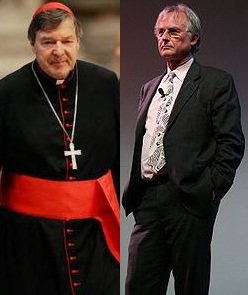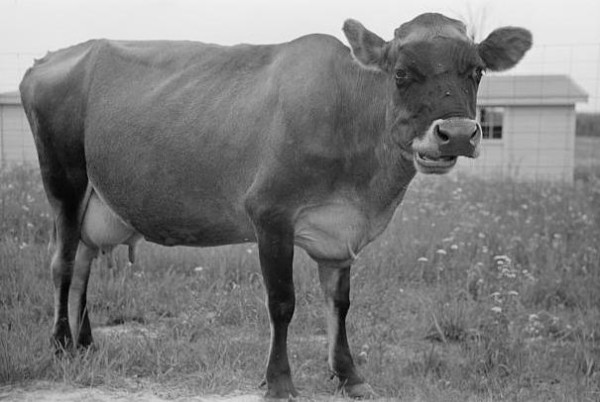Cows, Quarks, and Divine Simplicity
by Dominicans of the Province of St. Joseph
Filed under God's Nature
Recently, Cardinal George Pell publicly debated atheist Richard Dawkins on the subject of God’s existence. When Mr. Dawkins was asked about the cause of the universe, and how something could come from nothing, he replied that while his own theory cannot sufficiently answer this question, any answer would be better than something as complex as God. “'Nothing' is very, very, simple,” Dawkins says, “but God as a creative cause is very complex.”
 Dawkins’ point is that an immaterial God has to be at least as complex as the material universe he creates that, therefore, God’s existence would itself require an explanation, just as the existence of the universe does. In point of fact, however, the Christian philosophical and theological tradition has always conceived of God as uniquely and utterly simple, i.e., without any division or complexity. St. Thomas Aquinas, for example, deals with this question in the First Part of his Summa Theologiae, and he explains why God, as the source of existence itself, must be simpler than the universe he created.
Dawkins’ point is that an immaterial God has to be at least as complex as the material universe he creates that, therefore, God’s existence would itself require an explanation, just as the existence of the universe does. In point of fact, however, the Christian philosophical and theological tradition has always conceived of God as uniquely and utterly simple, i.e., without any division or complexity. St. Thomas Aquinas, for example, deals with this question in the First Part of his Summa Theologiae, and he explains why God, as the source of existence itself, must be simpler than the universe he created.
To see how this is true, we need to look at some concrete material beings, like cows. All cows share one thing in common: the fact that they are cows. This is their common “cow nature,” or what defines them as cows. But on top of this common cow nature, each cow has certain characteristics that make it “this particular cow.” One cow, Bessie, has a different spot pattern, for instance, or weighs more than her sister cow, Molly. These and other particular traits account for the fact that “this cow Bessie” and “that cow Molly” are not identical, despite the fact that they have the same nature.
This holds true for everything material in the universe. Even the smallest and simplest things, like electrons or quarks, still have some traits that make them more than just their natures. When we say “this cow”, “this electron,” or “that quark”, we mean something more than what defines any cow, any electron, or any quark. This is because a material thing is individuated from other material things simply by having matter and particular qualities.
In God, however, this does not happen. Whereas Bessie and the quark differ from their cow or quark natures by virtue of individual traits, everything that God is or does is identical to what he is, i.e., to his divine nature. For God, there is no difference between essence and existence. God is so simple that he is nothing but his divine nature. When God acts, thinks, loves, and creates, he does this just from what his nature is. As the cause of the universe and the source of all existence, God doesn't receive his existence from anything. Instead, God exists through himself; it is his essence to exist; he is the necessary Being that grounds the existence of all contingent beings. Of course, we cannot understand what it means to be “existence itself”, but we do know that something identical with its own existence must be the most simple and most actual being possible.
Responding to the same question about the cause of the universe, Cardinal Pell said of Dawkins’ response that it "dumbed down God and souped up the universe." Mr. Dawkins rejects God because he thinks a complex universe must have a complex cause. But the complexity of the universe does not imply that God is complex; it only implies that God’s simplicity transcends material limits. If God had created just one material thing, that one creature would not have sufficiently expressed his perfection. A whole universe of different kinds of material things, on the other hand, more fully reflects the divine goodness. Of course, the entire created order is only a pale reflection of divine perfection. Nevertheless, it still shows forth the splendor of its Maker. The heavens still proclaim the glory of God.
Related Posts
Note: Our goal is to cultivate serious and respectful dialogue. While it's OK to disagree—even encouraged!—any snarky, offensive, or off-topic comments will be deleted. Before commenting please read the Commenting Rules and Tips. If you're having trouble commenting, read the Commenting Instructions.













